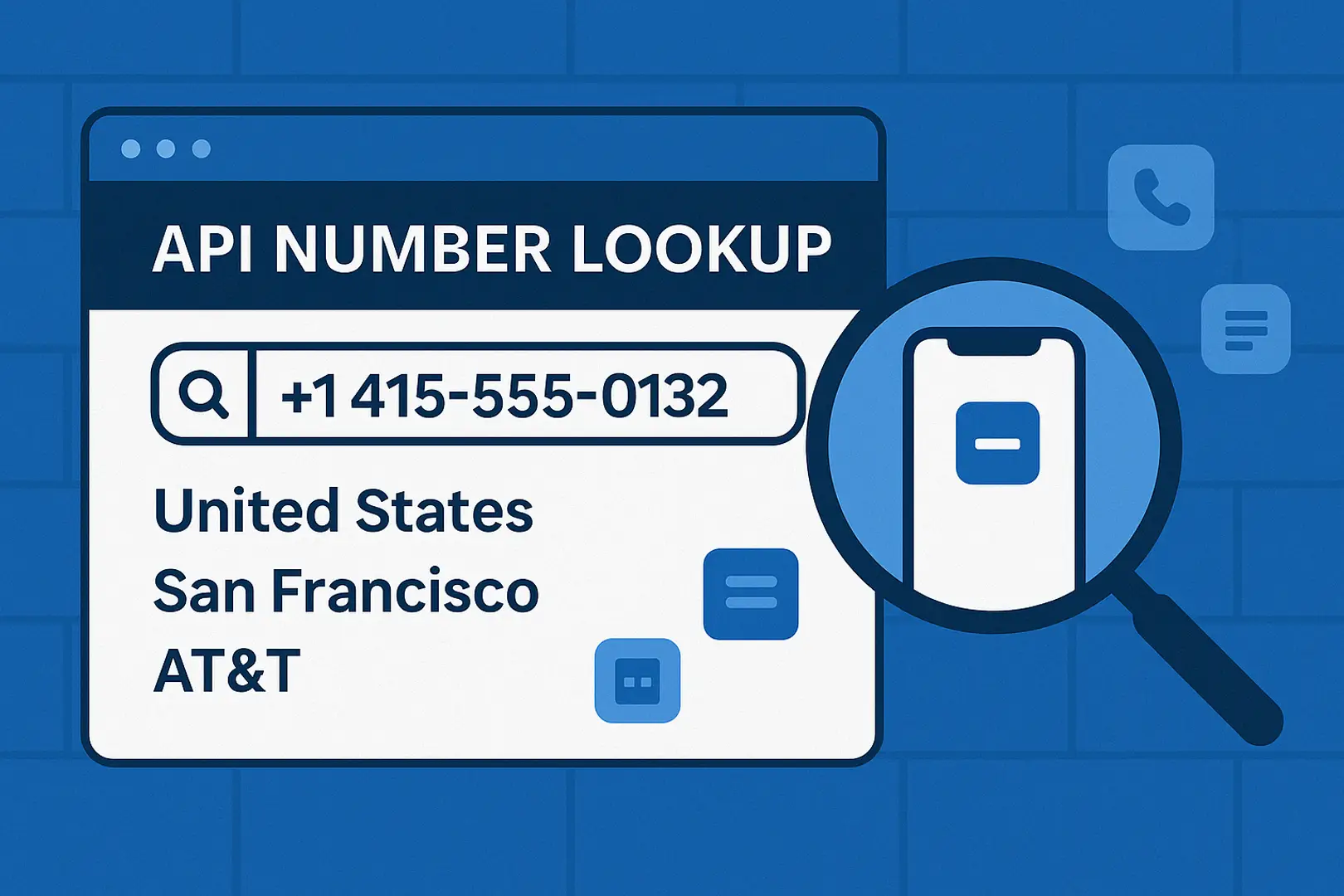

Carrier Lookup API to Detect Network Providers Fast
In a mobile-first world, knowing more than just a user’s phone number is essential. Understanding which carrier a number belongs to helps with SMS routing, fraud prevention, and overall communication efficiency. A carrier lookup API makes this process instant and reliable
.
What is a Carrier Lookup API?
A carrier lookup API allows you to identify the network provider (telecom carrier) for any phone number. When a user enters their number, the API returns:
- Carrier name (e.g., AT&T, Vodafone, Jio)
- Country and region
- Line type (mobile, landline, VoIP)
- Ported status (in some APIs)
This is valuable for businesses that rely on messaging services, voice communication, or secure user verification.
Why Does Carrier Information Matter?
- Carrier data enables more informed decisions, including:
- Routing SMS more accurately to avoid delivery issues.
- Detecting VoIP or virtual numbers that are often used for fraud.
- Enriching CRM data with telecom info for better segmentation.
- Flagging high-risk carriers often associated with spam or bots.
With a carrier lookup API, you gain a deeper understanding of your users while improving system logic.
Use Cases for Developers and Enterprises
SMS Service Providers
Optimize message delivery and avoid failed or delayed SMS.
Fraud Detection Systems
Identify disposable or virtual numbers to reduce account fraud.
Communication Apps
Customize messaging flows based on user’s network type.
E-commerce Platforms
Enhance delivery and order confirmation processes by ensuring mobile number validity and carrier info.
Benefits of Using a Carrier Lookup API
- Real-Time Results: Instant access to carrier metadata.
- Accurate SMS Routing: Improves communication success rates.
- Enhanced Security: Detect suspicious carriers and prevent abuse.
- Global Coverage: Works with international phone numbers.
For small enterprises, this means better customer interaction without investing in complex telecom infrastructure.
Example API Request
Here’s how easy it is to integrate a carrier lookup API:
bash
CopyEdit
GET https://api.ipstack.com/carrier-lookup?access_key=YOUR_API_KEY&phone=+918888888888
Sample Response:
json
CopyEdit
{
“number”: “+918888888888”,
“carrier”: “Airtel”,
“line_type”: “mobile”,
“location”: “Delhi”,
“country_code”: “IN”,
“valid”: true
}
This data can then be used to validate user input, filter traffic, or manage delivery pipelines in your applications.
IPstack’ss Advantage in Carrier Lookup
IPstack’s API offers:
- Fast and reliable results across regions
- Simple and secure integration
- Up-to-date carrier databases
- Developer-friendly pricing and documentation
Whether you’re working with 100 or 100,000 users, IPStack scales smoothly with your needs.
Best Practices for Implementation
Verify at Signup: Collect carrier info as soon as the number is entered.
Use with SMS Gateways: Improve deliverability by syncing carrier data with messaging platforms.
Flag Suspicious Carriers: Create filters to block risky VoIP or unverified networks.
Data Storage: Securely store lookup results for performance and analytics.
Developer Tips
- Use caching to reduce API call volume for repeated numbers.
- Validate response status codes for error handling.
- Combine with number validation for full phone data profiling.
- Log carrier trends for marketing segmentation.
- Privacy & Compliance
Phone carrier data is sensitive and must be handled responsibly. Always choose APIs that:
- Use secure HTTPS communicatio
- Comply with privacy regulations like GDPR
- Offer transparent usage policies
- IPStack ensures data is encrypted and not stored or misused in any way.
Frequently Asked Questions
Q1. Can it detect if a number has been ported to another carrier?
Some advanced APIs may include porting information. Check ipstack’s documentation for region-specific support.
Q2. How is this different from basic phone validation?
While validation confirms number format and existence, carrier lookup gives specific telecom provider data.
Q3. Can I look up landlines and VoIP numbers too?
Yes, the API identifies all line types and tells you whether a number is mobile, landline, or VoIP.
Why Small Businesses Should Care
Small businesses often overlook telecom data. But using a carrier lookup API helps:
- Save costs on failed communication
- Personalize marketing efforts
- Build a cleaner, more trustworthy user base
It’s a small tool with a big impact—especially for those operating in communication-heavy industries.
A carrier lookup API gives your business a new layer of control and clarity when dealing with user phone numbers. From improving SMS delivery to flagging high-risk numbers, this tool is essential for developers, marketers, and small enterprises.
With ipstack’s simple integration and accurate results, any application can benefit from real-time telecom insights. If your system depends on phone number inputs, make sure they’re powered by a reliable carrier lookup service.
Related Posts
© 2025 Invastor. All Rights Reserved

User Comments